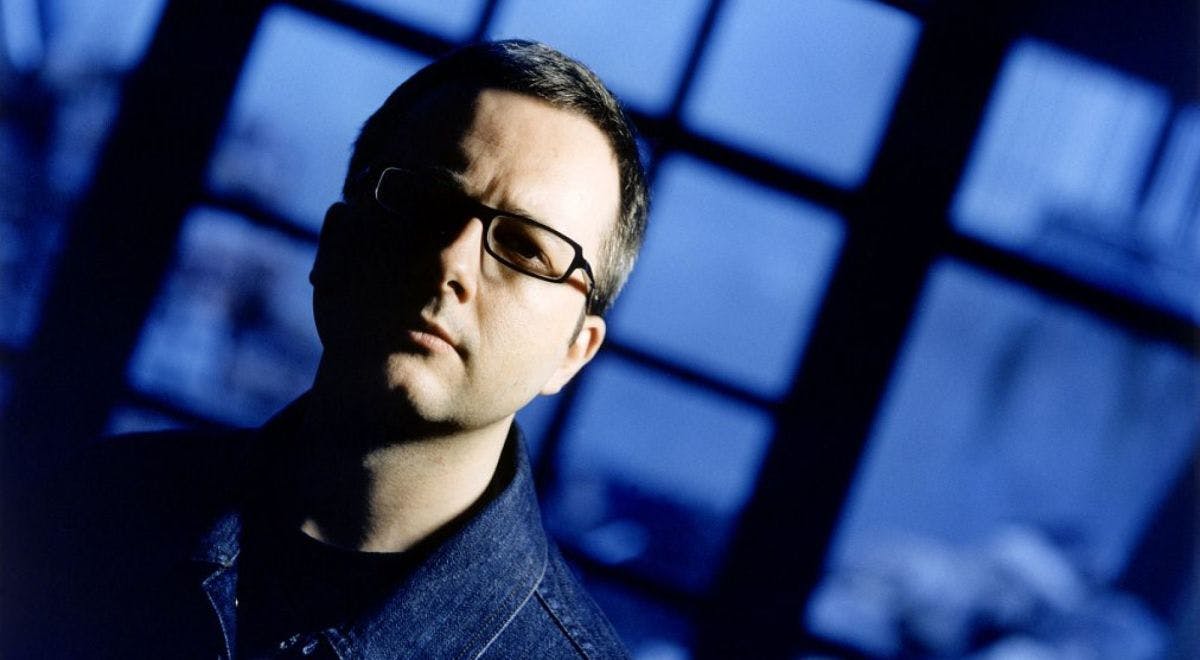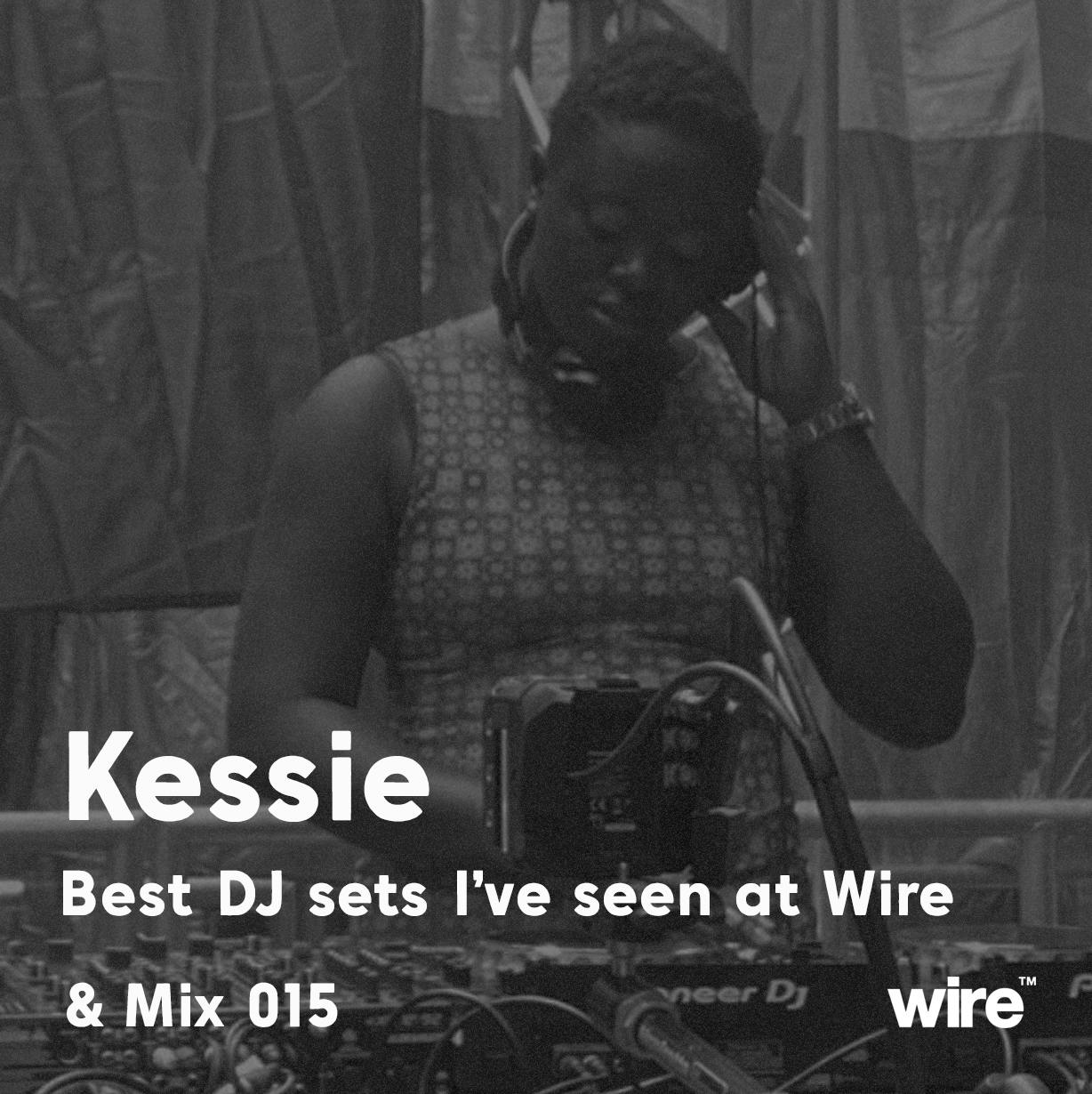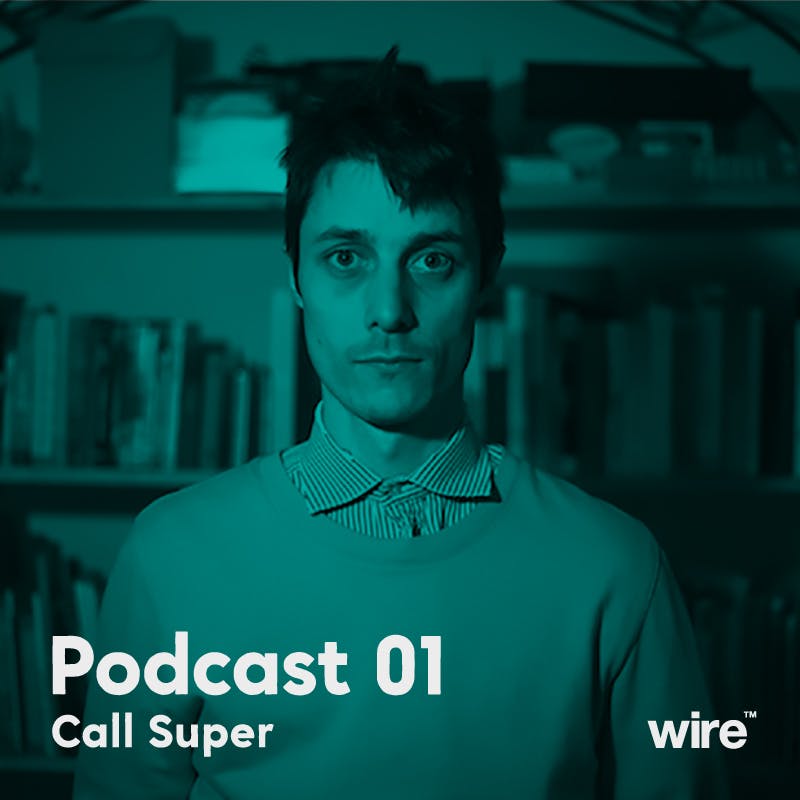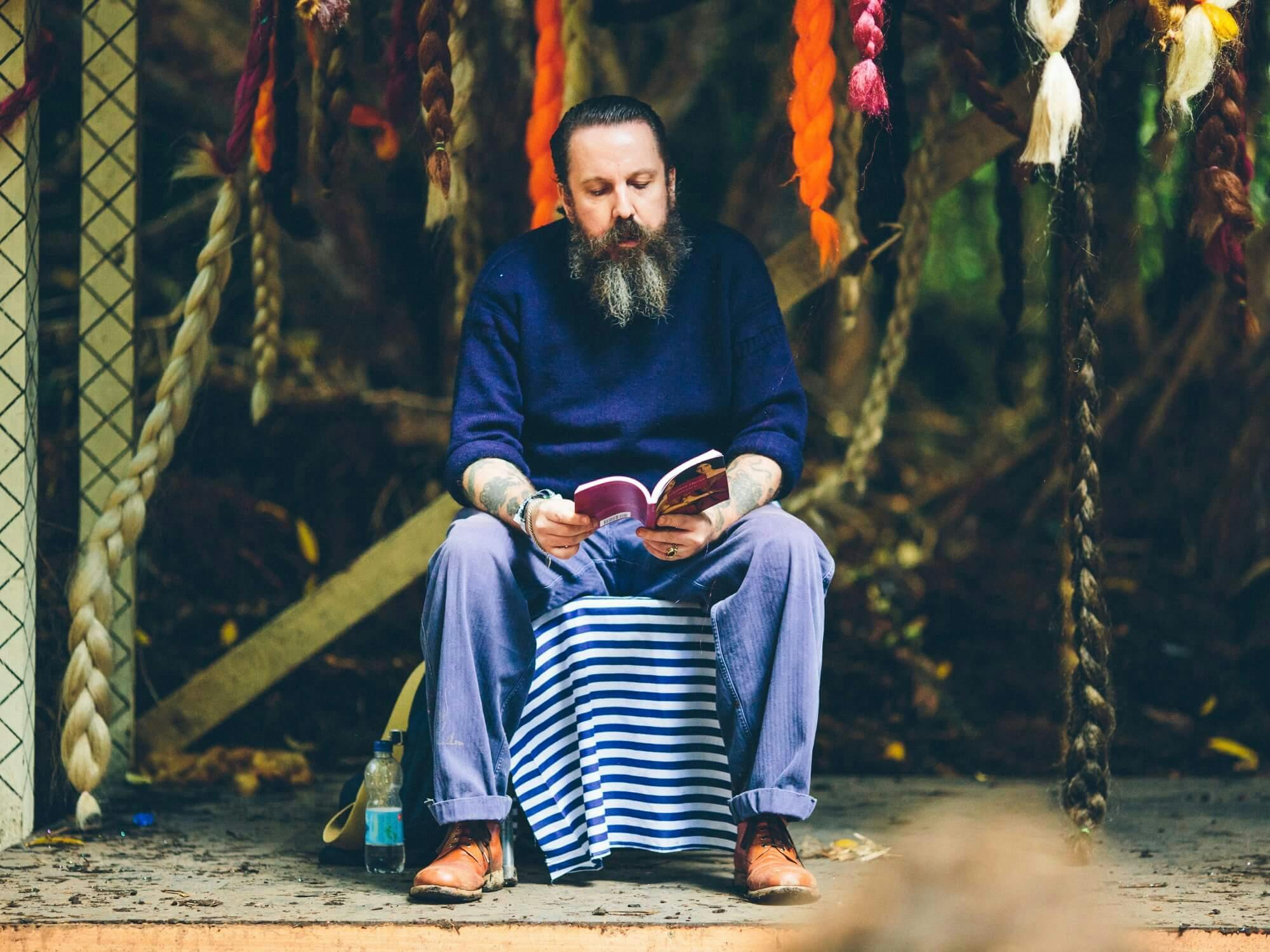
In his sound, visual aesthetic and sheer volume of output, you may be fooled into thinking that Carl Finlow isn’t of this earth. When he does come back down to terra firma, he doesn’t stay still, but traverses it: in the 2000s, probably the height of his powers, Finlow was regularly embarking on world tours, having made a name for himself as one of the world’s most gifted producers of club music. With this global recognition, and an alien arsenal of tracks, West Yorkshire electronic music fans will be surprised to hear that Finlow cut his teeth very close to home, in the muted outskirts of Leeds.
After 30 years living an international (and interplanetary) life, Carl is returning to the place where it all began to take the credit he deserves. And it couldn’t come at a more appropriate moment, as we see electro continue to rise in popularity. We asked the cult electro figure some questions ahead of his show at Wire on 10th February when he plays alongside another giant of the electro scene DJ Stingray for Dimensions Festival.
You have pretty strong links with Leeds, I imagine, having co-established the 20/20 Vision label. How did you first get involved with Ralph and the label?
“I moved from my home in Widnes near Liverpool to Leeds in 1989 to study furniture design at Leeds Polytechnic, but my urge to pursue my interests in electronic music lead me to quit my studies and to follow my dream full time. Leeds was a buzzing city and bursting with new music, pretty much all of it brand new to me. I got a part time job behind the bar in a nightclub (The Gallery) and soon started to discover not only all this blossoming music, but the DJs that played it. This lead to me hooking up with a few of them and we began making our own music. After maybe two years of this Ralph and I crossed paths and began to do the same. As fate would have it, we were both looking for a new place to live and so we ended up sharing a house together on the outskirts of Leeds, a farm house in Rothwell. Several other friends were also involved in this fledgling stage, each of us having synths, or effects, or computers etc, and we pooled it all together to create a really nice studio. This was ground zero, and everything began there.”
Do you have any memorable experiences of nights or gigs in Leeds?
“I had countless fantastic nights out in Leeds. The 90’s was just an incredible explosion of house and techno and I would frequently be out at either Back 2 Basics or The Orbit, the latter being a place where i saw some amazing live acts like Thomas Heckmann. As Ralph was resident at Basics, he would often bring home that weeks DJ from some far off part of the world and we would all party back at the farm and sometimes just hang in our studio and try to do collaborations. It was a wild melting pot of enthusiasm and talent. I look back extremely fondly to my time in Leeds.”
How did your electro sound fit into what is a predominantly housey and tech housey collective? When you collaborated, what was the dynamic like? And what do you think you brought to the tracks in terms of both sound and attitude?
“It’s true that there was not a great deal of electro around at that time. My close friend Daz Quayle was the main supplier of many wild types of music in my life, and he is pretty much totally responsible for me getting into electro. He was a big UR fan and that led to me hearing lots of Drexcyia, Elektroids, Dopplereffekt etc. I LOVED what I heard. I’ve always been a big sci-fi nut and electro to me was musical sci-fi – it just clicked with me and so I decided to start making not only my own electro, but with Daz too, under our Scarletron name. Writing together was always effortless. There was never any egos involved and no idea was too strange to try out. We were young, no kids, had an increasingly fantastic mad analog studio, and we lived in the middle of farmers fields with zero neighbours for hundreds of metres. It was idilic, and the best possible scenario for total freedom of expression.”
One of your tracks under the Otaku alias has the ‘Back To Basics Trucker Mix’. Did you produce music with the club night in mind? And do you still make music that is designed for the dance floor?
“Otaku was not actually me. That was Ralph and our third house member and long time friend Fraser Brydson. He had a job at a recording studio on Call Lane called Cogent Music and he and Ralph did the Otaku stuff together. From my perspective, all of the 2020 music was 100% for the club, as was the techno that also came from that time which we released on Trope Recordings, Thomas Heckmann’s label in Germany, under our Black Labs moniker. My electro was more of a personal passion and i guess – there was no real electro ‘scene’ at that point, well certainly not on the scale of house or techno.”
You are associated with countless “In Groups” on Discogs, in which we find all of your different collaborations over the years. Is it in your nature to work in teams on projects? Do you normally broach the subject with the other producer? Why, ultimately, have you enjoyed doing things this way?
“I think that was more about being in the time and place of it all. I’m a very chilled person and have always been very open about the whole creative process. As we were all living in the thick of it, musically, many opportunities presented themselves month after month. We lived in that bubble at The Farm for seven years and naturally that resulted in a huge output of music. Once we all went our separate ways around the millennium things changed drastically. It was the end of one era, but that start of something very different for me. Ralph and I had started gigging together around the world and after a gig in Paris I crossed paths with a young lady who a few years later would become my wife. Thus the next 12 or so years were spent living in Paris which also meant working almost totally solo. My only contact with other artists would be through remix work, and my output on the 2020 label gradually became less and less as I started to focus more and more on not only my electro, but on other avenues such as library music, which has ended up on tv and radio shows around the world.”
Looking at your resumé on your website, the amount of music you have made in your time is incredible. Where does your work ethic come from? And what was the first thing that made you realise that you wanted to be a music producer?
“I’m not sure there is a work ethic as such. It’s all about my pure love of music and technology. I’ve always been fascinated by this since I was a child, listening to strange cassette tapes my dad had of people like Isao Tomita in the 1970s and 80s. Fantastic landscapes or electronic classical music made with gigantic Moog and Roland modular synths. This was the start of it all for me and this lead to me receiving a small Moog synthesiser as a gift when I was 13 years old. A few years later around 1996 i had my first computer, a Sinclair Spectrum and with this, plus a Roland Juno 106, i began to make my own computer based music.
“I often forget just how much I have done to be honest. My focus has always been looking forward and not backwards so my past work kind of goes to the back of my memory banks. This last 12 months have been very retrospective for me though. I’ve decided to take stock of what I’ve done over the years and really look deeply at my back catalog. I’ve been very meticulous about how I’ve archived my music and data over the years and I’ve got cds and dvds of song data going as far back as 1994. It spans decades and it also spans many file formats. I became concerned that it would be lost in time, trapped in outdated software formats, so I decided to go on a midi archeology adventure to see what and if I could bring these old songs back from the abyss and save them in a modern format for future use. I succeeded in getting back songs in very old Cubase VST format, going back as far as 1996. I managed to get all the midi data and in many cases, all the original audio too. I’ve spent months working on this and have managed to get about 90 previously released electro tracks into a modern ableton live format. I plan to do something really special with all of this later in the year.”
Even though you have been consistently producing electro for 20 odd years, do you think we are experiencing some sort of revival of the genre at the moment? This is how it seems to club-goers in their early 20s. Or is it just that DJs like Stingray and Helena Hauff have been thrown into the limelight?
“There is definitely some limelight being thrown onto electro and it’s great to see Helena winning BBC radio mix awards, playing electro, some of it mine! I know the electro artists all over the world and I know they have been at it for a LONG time and to us it’s never been away. It’s a genre that deserves more recognition for sure. It’s very forward thinking and real electro (not like electro clash) has never been a scene that’s about fist pumping, hands in the air DJ adulation – it’s ALWAYS been about the music. Hopefully this wave of publicity we seem to be approaching will shed some more light on that and it’s maybe refreshing to get away from all the glitz and egos that have become so very tiring.”
You toured the world in the early 2000s – where was your favourite place to play?
“It was all great to be honest. Just going to some far off place I’d only seen on tv, and to have people in clubs come up to me with my own records and ask for autographs, and hearing their stories about how this track or this record had an effect on them, even leading some to start making their own music. That’s the best part for me. Music is such a magical thing and to know that mine is reaching so very far and wide is deeply rewarding. Everything else is just a fab added bonus – getting see Tokyo, Moscow, New York – it’s all a real pleasure.”
You return to Leeds in February to play your Silicon Scally live set. Could you give us an insight into what this entails?
“For the last 6 months I’ve been working on a huge amount of new music. I think the first 3 or 4 months of 2018 will see me releasing 10 new records. I think this year will easily be my biggest ever for releases. I’ve got EP’s coming out on Maceo Plex’s new Lone Romantic label, an EP on Sheffield’s CPU label, an LP on Electrix, an EP on Craigie Knoes, and a special 4 piece vinyl ‘A Selection of Works’ pt 1 & 2 on For Those That Knoe which is a lovely collection of 16 tracks of mine spanning some 21 years. The new live set will contain tracks from lots of these new records. I’m hugely looking forward to coming back to Leeds and playing my new music. I know there are going to be lots of old friends coming down so that coupled with DJ Stingray is looking like it will be a night to remember.”




